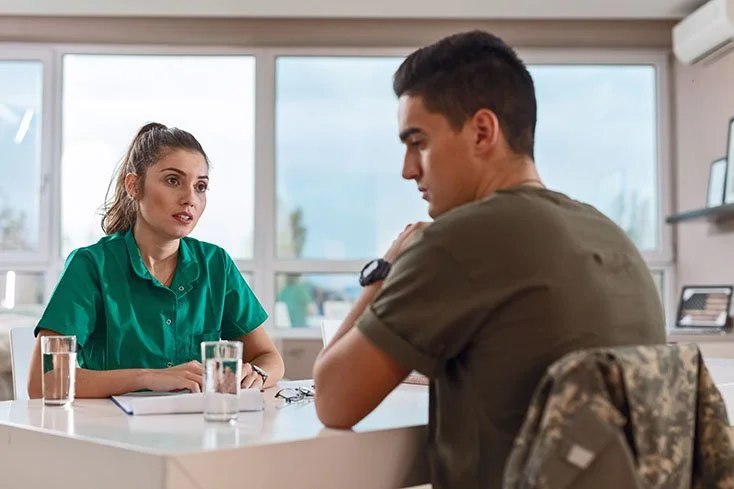In 2008, NAMI and the U.S. Congress designated July as the Bebe Moore Campbell National Minority Mental Health Awareness Month. We are indebted to Bebe Moore Campbell for her activism, and her candid writings regarding mental illness in communities of color. Hopefully, NAMI and perhaps the government can find a way to honor her many contributions, such as a postage stamp or a designated award. However, we need to start calling July BIPOC Mental Health Awareness Month.
Read MoreThe National Alliance on Mental Illnesses - NAMI Dane County is introducing its new LGBTQIA+ (lesbian, gay, bisexual, transgender, queer, intersex, and asexual) Support Group, to be held on Tuesday evenings starting on the 12th of July. Currently, NAMI has five support groups: the Connecting Support Group, Bipolar/Depression Support Group, Women’s Depression and Anxiety Support Group, Family Support Group, and the Young Adult Support Group. Each of these groups are tailored towards serving the unique needs of different individuals living with mental illnesses. The groups are facilitated by volunteers with lived-experiences. While queer individuals intersect with identities shared in these other NAMI groups there is yet to be a group that specifically supports their diverse range of identities and expressions of gender and sexual orientation.
Read MoreCodependency is defined as an unhealthy reliance on someone, such as a friend, partner, or family member that is emotional, physical, and/or spiritual. Codependency can vary in severity and form; codependency can also develop in a variety of different relationships (e.g., parent, child, partner, friends, and family members). For someone in a codependent relationship, it can feel like their livelihood depends on the person they are in a codependent relationship with.
Read MoreWith work responsibilities filling up our schedules to the brim, things can get pretty toxic and unhealthy for our physical health and emotional wellness. It is also relatively easy to forego our needs as we attend to a million details as we look after the welfare of our loved ones. And yet, without proper self-care, you may end up exhausted, unmotivated, which can exacerbate symptoms of anxiety and depression.
Read MoreAdvocacy is a powerful tool especially when helping someone navigate mental illness. Advocacy can demonstrate allyship and also be used to help empower people with mental health issues. Taking the time to learn how to advocate for someone with mental illness is a useful and lifelong skill. Listed below are some simple ways to help advocate for someone with mental illness.
Read MoreThe term “intersectionality” was first coined by Kimberlé Crenshaw in 1989. Intersectionality encompasses the idea that we have more than one identity with a combination of various identity markers such as gender, race, religion, sexuality, etc. These identity markers intersect with one another and shape our experience. This pertains to mental health because our mental health oftentimes does not exist separately from identity markers.
Read MoreThe National Institute of Mental Health classifies borderline personality disorder (BPD) as “an illness marked by an ongoing pattern of varying moods, self-image, and behavior. These symptoms often result in impulsive actions and problems in relationships.” However, with the right treatment, symptoms of BPD can be alleviated.
Read More
Imagine someone suffering from something that is as fatal as cancer, but it is all in their mind which makes it hard to even explain to someone. Surviving with it is so hard that they find it difficult to zip up their jacket or pull the bus cord. This disease is also multifactorial, which means it is caused by multiple factors, including multiple genes and environmental factors including the maternal environment, much like cancers. But unlike cancers or any illnesses that manifest physically, these are widely misunderstood and considered as just weaknesses or the fault of the patient. I just described how debilitating and isolating clinical depression or Major Depressive Disorder (MDD) can be. And that is just the tip of the iceberg.
The pandemic has created feelings of isolation, stress, and fear. This experience has been overwhelming and exhausting for the vast majority of the population but has taken an especially large toll on those with pre-existing mental health conditions. The stressors brought on by the pandemic have caused both an increase in rates of mental health conditions and a worsening of existing symptoms. Of particular interest is the effect of the pandemic on those experiencing contamination OCD (Obsessive Compulsive Disorder) and health anxiety, two conditions that are directly related to fear of the spread of disease.
Read MoreCARES (Community Alternative Response Emergency Services) was developed as an alternative resource for behavioral emergencies that would traditionally get a fire and/or police response. CARES crews are trained and equipped to respond to non-violent emergency calls.
Read MoreThere are many “shoulds” about how families and holidays should be: Families should love each other. Families should get along. Holidays should be fun. Reality, however, is often much more complex, and hard. The facts are that many people do not have happy families, happy family memories or happy holidays.
Read MoreNAMI Dane County and Madison Memorial High School have partnered to create youth wellness groups. These groups will begin the week of December 6th and aim to provide support for students in the understaffed school. Nicole McCue, NAMI Dane County’s Youth Program and Outreach Coordinator, describes the wellness groups as a “supplement for existing mental health education frameworks”.
Read MoreUnfortunately, we know that stigma is often a barrier to talking about traumatic events and mental health concerns, especially for the veterans we help. A critical part of overcoming that stigma is addressing the mental health myths within the veteran community and society as a whole.
It’s time we address these misunderstandings and refute the myths. By setting the record straight, we can change the experience of veterans, their families and anyone battling invisible wounds.
Read MoreFor about five years now, I have known that something was different about me. Around my senior year of high school, I began to notice that I worried about things other people didn’t. To a weird extent. I noticed that all my friends were happy and excited about life, whereas sometimes I could barely get out of bed. I noticed that little things sent me into a spiral, my notebooks not in the right order, a text from a friend in a different tone (as if I actually knew this was what was happening). These were little things that a lot of my friends never even thought about. But, for a while, I just decided to ignore it. I developed my own coping mechanisms, pushing down what I felt and plastering a smile on my face to feel “normal.”
Read MoreOn Monday, September 27th, Joe Parisi, Dane County Executive, announced $10 million dollars in funding to construct the Dane County Crisis Triage Center (CTC) as part of his 2022 budget. Parisi is also creating a new division within the county government called the Division of Behavioral Health to oversee these new changes. The CTC will follow the creation of the Community Alternative Response for Emergency Services (CARES) team, and both will work together to decriminalize mental health and deter the involvement of the criminal justice system for individuals who are having a mental health crisis.
Read MoreWith the rapidly-changing COVID situation, school districts are making decisions about mask requirements, as parents are weighing the possible risks of in-person learning against the social, emotional, and educational benefits it can offer.
Read MoreJuly was BIPOC Mental Health Month. In light of this, we reached out to organizations that support BIPOC mental health in order to learn more about what communities need in order to receive culturally competent care. Throughout these discussions, a few common topics emerged.
Read MoreI recall sitting across from my school counselor and feeling somewhat relieved that she came to the United Arab Emirates from the same country as I had, India. How else would she have understood when I said, “My mom doesn’t let me make any decisions...ever,” unless she’d experienced it herself?
Looking back, I realize that any counselor, irrespective of nationality, would have understood; teenagers complaining about having no control over their lives is practically universal. However, there are other experiences that aren’t as widely-shared — experiences that are more culturally-specific and connected to identity.
Read More“As we highlight people who are underserved in the mental health care system, I implore us all: Listen. The answer exists within the story itself — whether it aligns with pre-existing notions is irrelevant."
Read MoreWhen I told my senior project professor that I wanted to write about mental health interventions for the LBGTQ+ community, she expressed concern that I wouldn’t find enough research on the topic. I understood that psychology studies tended to focus on easily accessible groups, but I figured with the increasing awareness of social justice issues in the past decade, I would find enough studies to make a paper out of. But after a few keyword searches for LGBTQ+ mental health interventions on the university library page, it became clear why my professor had offered some words of caution.
Read More










